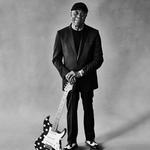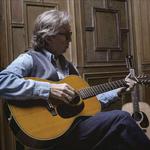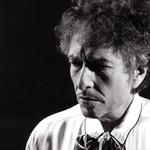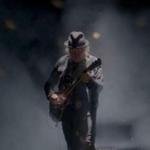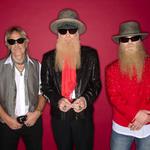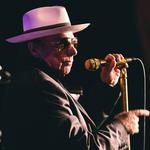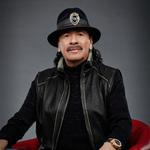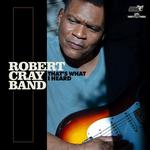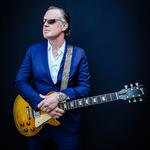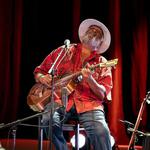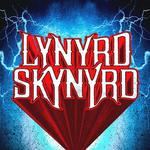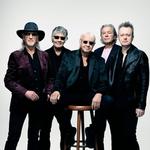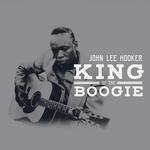
John Lee Hooker
John Lee Hooker (August 22, 1917 – June 21, 2001) was an influential American blues singer, guitarist, and songwriter born in Clarksdale, Mississippi. From a musical family, he is a cousin of Earl Hooker.
Though he stuttered slightly in his normal speech, he performed in a half-spoken style that became his trademark. Rhythmically, his music was free, a property common with early acoustic Delta blues musicians. His vocal phrasing was less closely tied to specific bars than most blues singers'. This casual, rambling style had been gradually diminishing with the onset of electric blues bands from Chicago but, even when not playing solo, Hooker retained it in his sound.
Attracted by factory work, Hooker moved to Detroit in 1943, where he would reside until 1969. He felt right at home near the blues venues and saloons on Hastings Street, the heart of black entertainment on Detroit's east side. Hooker's recording career began in 1948 with the hit single, "Boogie Chillen" cut in a studio near Wayne State University.
Despite being illiterate, he was a prolific lyricist. In addition to adapting the occasionally traditional blues lyric (such as "if I was chief of police, I would run her right out of town"), he freely invented many of his songs from scratch. Recording studios in the 50s rarely paid black musicians more than a pittance, so Hooker would spend the night wandering from studio to studio, coming up with new songs or variations on his songs for each studio. Due to his recording contract, he would record these songs under obvious pseudonyms such as "John Lee Booker," "Johnny Hooker", or "John Cooker".
His early solo songs were recorded under Bernie Besman. John Lee Hooker rarely played on a standard beat, changing tempo to fit the needs of the song. This made it nearly impossible to add backing tracks. As a result, Besman would record Hooker, in addition to playing guitar and singing, stomping along with the music on a wooden palette.
John Lee Hooker's guitar playing is closely alligned with piano Boogie Woogie. He would play the walking bass pattern with his thumb, stopping to emphasize the end of a line with a series of trills, done by rapid hammer-ons and pull-offs. The songs that most epitomize his early sound are "Boogie Chillen," about being 17 and wanting to go out to dance at the Boogie clubs, "Baby Please Don't Go," a more typical blues song, summed up by its title, and "Tupelo," a stunningly sad song about the flooding of Tupelo, Mississippi.
He maintained a solo career, popular with blues and folk music fans of the early 1960s and crossed over to white audiences, giving an early opportunity to the young Bob Dylan. As he got older, he added more and more people to his band, changing his live show from simply Hooker with his guitar to a large band, with Hooker singing.
He appeared and sang in the 1980 movie The Blues Brothers. Due to Hooker's improvisatory style, his performance was filmed and sound-recorded live, in contrast to the usual "playback" technique used in film musicals.
In 1989 he joined with a number of musicians, including Keith Richards and Carlos Santana to record The Healer, which won a Grammy award — one of many awards.
He fell ill just before a tour of Europe in 2001 and died soon afterwards at the age of 83.
Hooker recorded over 100 albums and lived the last years of his life in San Francisco, California, where he licensed a nightclub to use the name Boom Boom Room, after one of his hits.
Among his many awards, John Lee Hooker has a star on the Hollywood Walk of Fame and in 1991 he was inducted into the Rock and Roll Hall of Fame. Two of his songs, "Boogie Chillen" and "Boom Boom" were named to the list of The Rock and Roll Hall of Fame's 500 Songs that Shaped Rock and Roll.
John Lee recorded several songs with Van Morrison, including "Never Get Out of These Blues Alive", "The Healing Game" and "I Cover the Waterfront". He also appeared on stage with Van Morrison several times, some of which was released on the live album "A Night in San Francisco".
John Lee Also Recorded in the sixties with british blues band Groundhogs. These recordings are still available as a CD "John Lee Hooker with The Groundhogs". More importantly, Hooker recorded with the Blues-rock outfit Canned Heat, delivering the album 'Hooker N' Heat' in 1971. Hooker was influential and topical even in his lifetime, as evidenced in the MC5 cover of "Motor City's Burning" on thier first album, recorded almost immediately after the riots which are the song's topic.
On tour
No
Followers
229,585
Category
Rock
Similar Artists On Tour
About John Lee Hooker
John Lee Hooker (August 22, 1917 – June 21, 2001) was an influential American blues singer, guitarist, and songwriter born in Clarksdale, Mississippi. From a musical family, he is a cousin of Earl Hooker.
Though he stuttered slightly in his normal speech, he performed in a half-spoken style that became his trademark. Rhythmically, his music was free, a property common with early acoustic Delta blues musicians. His vocal phrasing was less closely tied to specific bars than most blues singers'. This casual, rambling style had been gradually diminishing with the onset of electric blues bands from Chicago but, even when not playing solo, Hooker retained it in his sound.
Attracted by factory work, Hooker moved to Detroit in 1943, where he would reside until 1969. He felt right at home near the blues venues and saloons on Hastings Street, the heart of black entertainment on Detroit's east side. Hooker's recording career began in 1948 with the hit single, "Boogie Chillen" cut in a studio near Wayne State University.
Despite being illiterate, he was a prolific lyricist. In addition to adapting the occasionally traditional blues lyric (such as "if I was chief of police, I would run her right out of town"), he freely invented many of his songs from scratch. Recording studios in the 50s rarely paid black musicians more than a pittance, so Hooker would spend the night wandering from studio to studio, coming up with new songs or variations on his songs for each studio. Due to his recording contract, he would record these songs under obvious pseudonyms such as "John Lee Booker," "Johnny Hooker", or "John Cooker".
His early solo songs were recorded under Bernie Besman. John Lee Hooker rarely played on a standard beat, changing tempo to fit the needs of the song. This made it nearly impossible to add backing tracks. As a result, Besman would record Hooker, in addition to playing guitar and singing, stomping along with the music on a wooden palette.
John Lee Hooker's guitar playing is closely alligned with piano Boogie Woogie. He would play the walking bass pattern with his thumb, stopping to emphasize the end of a line with a series of trills, done by rapid hammer-ons and pull-offs. The songs that most epitomize his early sound are "Boogie Chillen," about being 17 and wanting to go out to dance at the Boogie clubs, "Baby Please Don't Go," a more typical blues song, summed up by its title, and "Tupelo," a stunningly sad song about the flooding of Tupelo, Mississippi.
He maintained a solo career, popular with blues and folk music fans of the early 1960s and crossed over to white audiences, giving an early opportunity to the young Bob Dylan. As he got older, he added more and more people to his band, changing his live show from simply Hooker with his guitar to a large band, with Hooker singing.
He appeared and sang in the 1980 movie The Blues Brothers. Due to Hooker's improvisatory style, his performance was filmed and sound-recorded live, in contrast to the usual "playback" technique used in film musicals.
In 1989 he joined with a number of musicians, including Keith Richards and Carlos Santana to record The Healer, which won a Grammy award — one of many awards.
He fell ill just before a tour of Europe in 2001 and died soon afterwards at the age of 83.
Hooker recorded over 100 albums and lived the last years of his life in San Francisco, California, where he licensed a nightclub to use the name Boom Boom Room, after one of his hits.
Among his many awards, John Lee Hooker has a star on the Hollywood Walk of Fame and in 1991 he was inducted into the Rock and Roll Hall of Fame. Two of his songs, "Boogie Chillen" and "Boom Boom" were named to the list of The Rock and Roll Hall of Fame's 500 Songs that Shaped Rock and Roll.
John Lee recorded several songs with Van Morrison, including "Never Get Out of These Blues Alive", "The Healing Game" and "I Cover the Waterfront". He also appeared on stage with Van Morrison several times, some of which was released on the live album "A Night in San Francisco".
John Lee Also Recorded in the sixties with british blues band Groundhogs. These recordings are still available as a CD "John Lee Hooker with The Groundhogs". More importantly, Hooker recorded with the Blues-rock outfit Canned Heat, delivering the album 'Hooker N' Heat' in 1971. Hooker was influential and topical even in his lifetime, as evidenced in the MC5 cover of "Motor City's Burning" on thier first album, recorded almost immediately after the riots which are the song's topic.
Follow on Bandsintown
Genres
Rock
Frequently Asked Questions About John Lee Hooker
Concerts & Tour Date Information
Is John Lee Hooker on tour?
No, John Lee Hooker is not currently on tour and doesn’t have any tour dates scheduled for
2026-2027. Browse related artists and follow John Lee Hooker for the latest updates on
upcoming concert tours.
